-
 Bitcoin
Bitcoin $119900
1.12% -
 Ethereum
Ethereum $4599
9.32% -
 XRP
XRP $3.282
4.63% -
 Tether USDt
Tether USDt $0.9998
-0.02% -
 BNB
BNB $833.4
3.91% -
 Solana
Solana $193.3
10.47% -
 USDC
USDC $0.9999
-0.01% -
 Dogecoin
Dogecoin $0.2366
5.64% -
 TRON
TRON $0.3534
2.64% -
 Cardano
Cardano $0.8477
9.54% -
 Chainlink
Chainlink $23.33
10.42% -
 Hyperliquid
Hyperliquid $45.59
5.29% -
 Stellar
Stellar $0.4509
5.00% -
 Sui
Sui $3.888
6.46% -
 Bitcoin Cash
Bitcoin Cash $620.4
7.20% -
 Hedera
Hedera $0.2613
6.53% -
 Ethena USDe
Ethena USDe $1.001
0.01% -
 Avalanche
Avalanche $24.75
8.33% -
 Litecoin
Litecoin $130.2
8.10% -
 Toncoin
Toncoin $3.541
5.12% -
 UNUS SED LEO
UNUS SED LEO $9.079
1.11% -
 Shiba Inu
Shiba Inu $0.00001367
5.60% -
 Uniswap
Uniswap $11.55
4.73% -
 Polkadot
Polkadot $4.181
8.43% -
 Cronos
Cronos $0.1664
0.63% -
 Dai
Dai $0.9998
-0.03% -
 Ethena
Ethena $0.7980
2.17% -
 Pepe
Pepe $0.00001225
8.94% -
 Bitget Token
Bitget Token $4.452
1.25% -
 Aave
Aave $317.1
8.17%
How do currency dealers make money?
Currency dealers generate income through spread trading, interbank trading, and executing client orders, profiting from bid-ask price differences and commission charges.
Jan 13, 2025 at 08:39 am
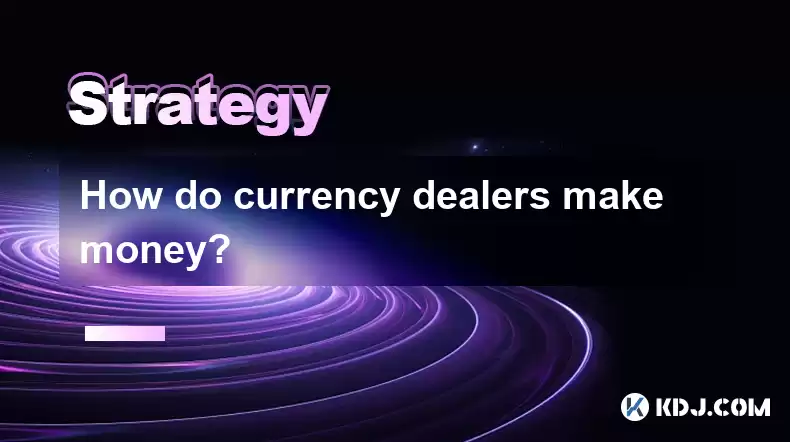
Key Points:
- Understanding the Role of Currency Dealers
- Income Streams for Currency Dealers
- Market Structures and Trading Strategies
- Risk Management and Regulatory Considerations
- The Impact of Technology and Automation
How Currency Dealers Make Money
Currency dealers, also known as foreign exchange dealers, are professionals who facilitate the exchange of currencies between financial institutions and other market participants. They play a crucial role in the global currency market, which is the largest and most liquid financial market in the world. Here's an in-depth look at how currency dealers make money:
Income Streams for Currency Dealers
- Spread Trading: Currency dealers buy and sell foreign currencies at slightly different prices, known as the bid-ask spread. The profit is realized when the spread widens and the dealer can sell the currency for a higher price than the initial purchase price.
- Interbank Trading: Currency dealers facilitate currency exchanges between banks and other financial institutions on wholesale interbank markets. They charge a commission on each transaction, which varies based on the volume and complexity of the trade.
- Client Orders: Retail and institutional clients place orders with currency dealers to buy or sell specified currencies at specific exchange rates. The dealer executes the order on behalf of the client, charging a commission or spread.
Market Structures and Trading Strategies
The currency market is characterized by high liquidity, allowing for fast and efficient execution of trades. Currency dealers may employ various trading strategies to optimize their profit margins:
- Scalping: Involves taking small, frequent profits from minor price movements over short periods.
- Trend Following: Identifies long-term trends in currency pairs and capitalizes on the trend by holding positions in line with the trend direction.
- Carry Trade: Exploits interest rate differentials between currencies. It involves borrowing in a low-interest currency and investing in a high-interest currency.
Risk Management and Regulatory Considerations
Currency trading involves significant risks, including exchange rate volatility, geopolitical factors, and economic news events. Currency dealers must implement robust risk management strategies to mitigate potential losses:
- Position Sizing: Determining the appropriate amount of currency to trade based on available capital and risk tolerance.
- Stop-Loss Orders: Using orders that automatically close positions when a predefined price level is reached to limit potential losses.
- Hedging: Employing strategies to offset the risk of adverse price movements, such as spread trading or using futures contracts.
The Impact of Technology and Automation
Technological advancements have transformed the currency market in recent years:
- Electronic Trading Platforms: Online trading platforms provide a convenient and efficient way for dealers to execute trades.
- High-Frequency Trading: Algorithmic trading systems execute large numbers of high-speed trades to exploit market anomalies and capture small profit margins.
- Automated Risk Management: Software applications automate risk monitoring and execution of stop-loss orders, enhancing efficiency and timely response to market conditions.
FAQs:
Q: What is the average salary of a currency dealer?
A: Salaries for currency dealers vary widely depending on factors such as experience, job title, and employer. According to Salary.com, the average salary for a Foreign Exchange Dealer in the United States is around $68,000 annually.
Q: What skills are required to become a currency dealer?
A: Successful currency dealers typically possess a strong understanding of financial markets, economic analysis, and risk management techniques. A background in finance, economics, or mathematics is preferred. Proficiency in trading platforms and analytical software is also essential.
Q: How can I learn currency trading?
A: There are various ways to learn about currency trading. Online courses, certification programs, books, and webinars can provide a good foundation. It's recommended to start with a demo account to practice before trading with real money.
Q: What are the risks involved in currency trading?
A: Currency trading involves significant financial risks, including exchange rate fluctuations, economic events, and geopolitical uncertainties. Leveraged trading can amplify both potential profits and losses. It's crucial to understand and manage these risks carefully, especially for novice traders.
Disclaimer:info@kdj.com
The information provided is not trading advice. kdj.com does not assume any responsibility for any investments made based on the information provided in this article. Cryptocurrencies are highly volatile and it is highly recommended that you invest with caution after thorough research!
If you believe that the content used on this website infringes your copyright, please contact us immediately (info@kdj.com) and we will delete it promptly.
- Unich's OTC Exchange: Surging with $1.2B Volume – What's the Hype?
- 2025-08-13 02:50:11
- MoonBull's Explosive Moves: Your Crypto Whitelist Ticket to Ride!
- 2025-08-13 02:30:11
- MAGACOIN Finance: Don't Miss the Presale Bonus!
- 2025-08-13 02:30:11
- Trump's Crypto Kingdom: $2.4 Billion and Counting
- 2025-08-13 02:50:11
- Solana, LSTs, and SEC Approval: A New Dawn for Crypto?
- 2025-08-13 02:55:12
- Bitcoin's Profit Surge: Unpacking the BTC Value Boom
- 2025-08-13 02:55:12
Related knowledge
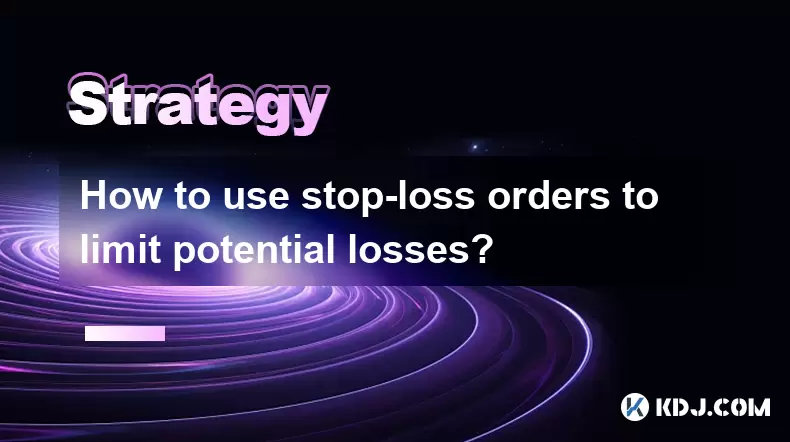
How to use stop-loss orders to limit potential losses?
Aug 08,2025 at 02:01pm
Understanding Stop-Loss Orders in Cryptocurrency TradingA stop-loss order is a risk management tool used by traders to automatically sell a cryptocurr...
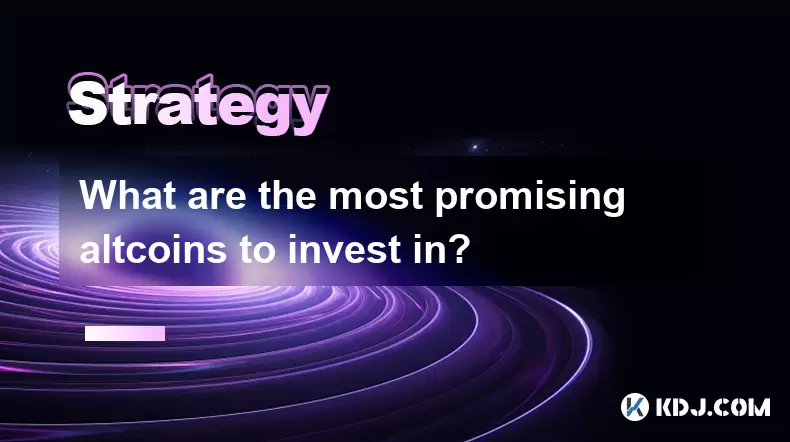
What are the most promising altcoins to invest in?
Aug 10,2025 at 11:42am
Understanding the Role of Private Keys in Cryptocurrency WalletsIn the world of cryptocurrency, private keys are the cornerstone of ownership and cont...
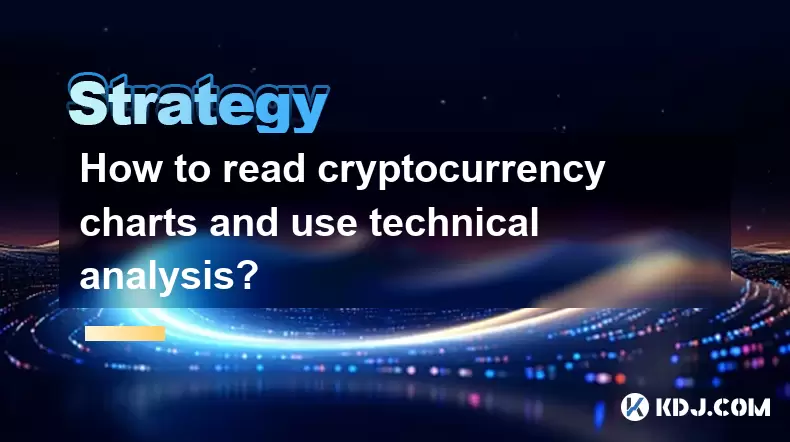
How to read cryptocurrency charts and use technical analysis?
Aug 08,2025 at 11:08am
Understanding the Basics of Cryptocurrency ChartsCryptocurrency charts are graphical representations of price movements over time. These charts are es...
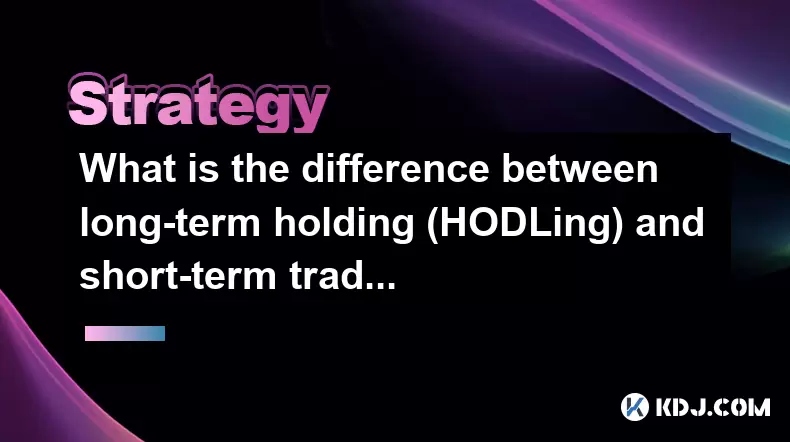
What is the difference between long-term holding (HODLing) and short-term trading?
Aug 10,2025 at 05:30pm
Understanding HODLing in the Cryptocurrency SpaceThe term HODL originated from a typo in a 2013 Bitcoin forum post and has since become a widely accep...
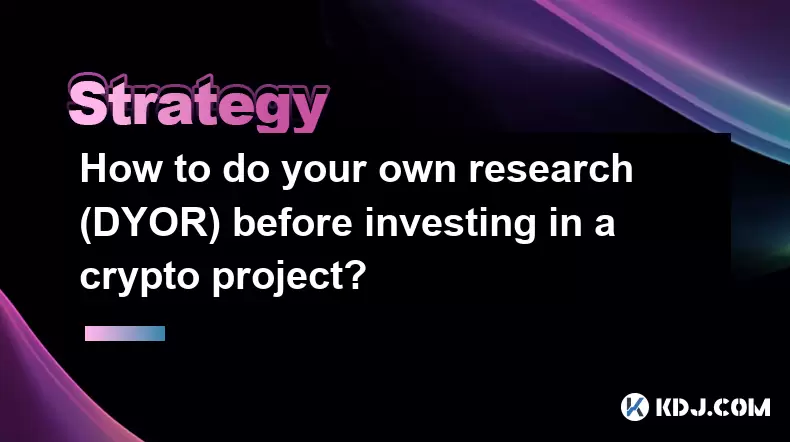
How to do your own research (DYOR) before investing in a crypto project?
Aug 08,2025 at 09:07pm
Understanding the Core Principles of DYOR in CryptocurrencyEngaging in due diligence before investing in any cryptocurrency project is essential to mi...
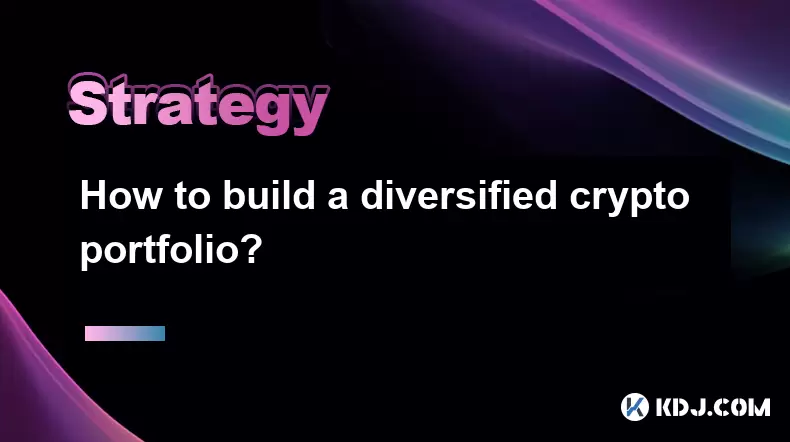
How to build a diversified crypto portfolio?
Aug 09,2025 at 12:21pm
Understanding the Importance of Diversification in CryptoDiversification in the cryptocurrency space is a strategy used to reduce risk by spreading in...

How to use stop-loss orders to limit potential losses?
Aug 08,2025 at 02:01pm
Understanding Stop-Loss Orders in Cryptocurrency TradingA stop-loss order is a risk management tool used by traders to automatically sell a cryptocurr...

What are the most promising altcoins to invest in?
Aug 10,2025 at 11:42am
Understanding the Role of Private Keys in Cryptocurrency WalletsIn the world of cryptocurrency, private keys are the cornerstone of ownership and cont...

How to read cryptocurrency charts and use technical analysis?
Aug 08,2025 at 11:08am
Understanding the Basics of Cryptocurrency ChartsCryptocurrency charts are graphical representations of price movements over time. These charts are es...

What is the difference between long-term holding (HODLing) and short-term trading?
Aug 10,2025 at 05:30pm
Understanding HODLing in the Cryptocurrency SpaceThe term HODL originated from a typo in a 2013 Bitcoin forum post and has since become a widely accep...

How to do your own research (DYOR) before investing in a crypto project?
Aug 08,2025 at 09:07pm
Understanding the Core Principles of DYOR in CryptocurrencyEngaging in due diligence before investing in any cryptocurrency project is essential to mi...

How to build a diversified crypto portfolio?
Aug 09,2025 at 12:21pm
Understanding the Importance of Diversification in CryptoDiversification in the cryptocurrency space is a strategy used to reduce risk by spreading in...
See all articles

























































































